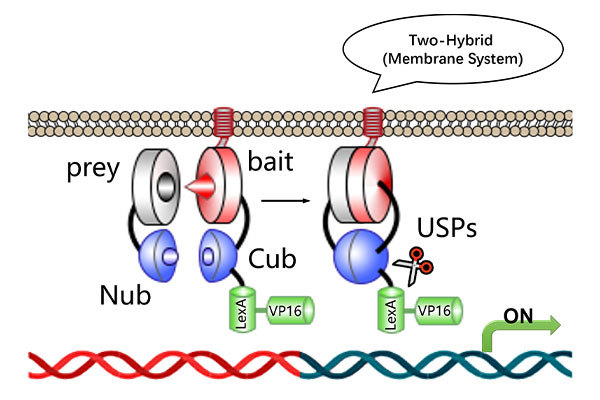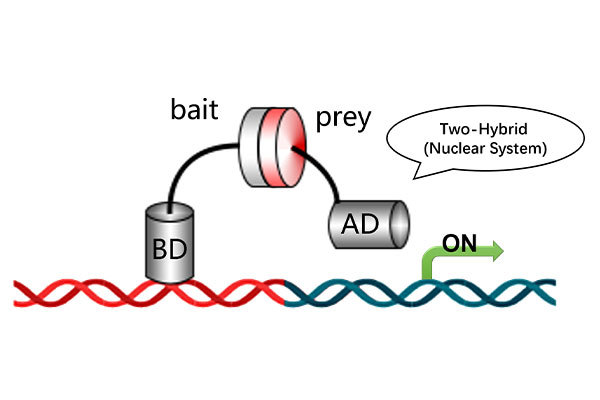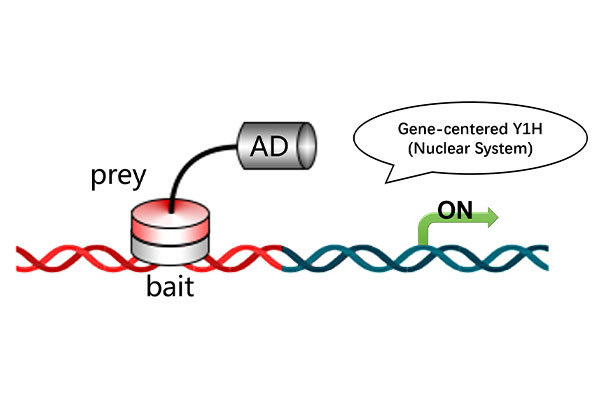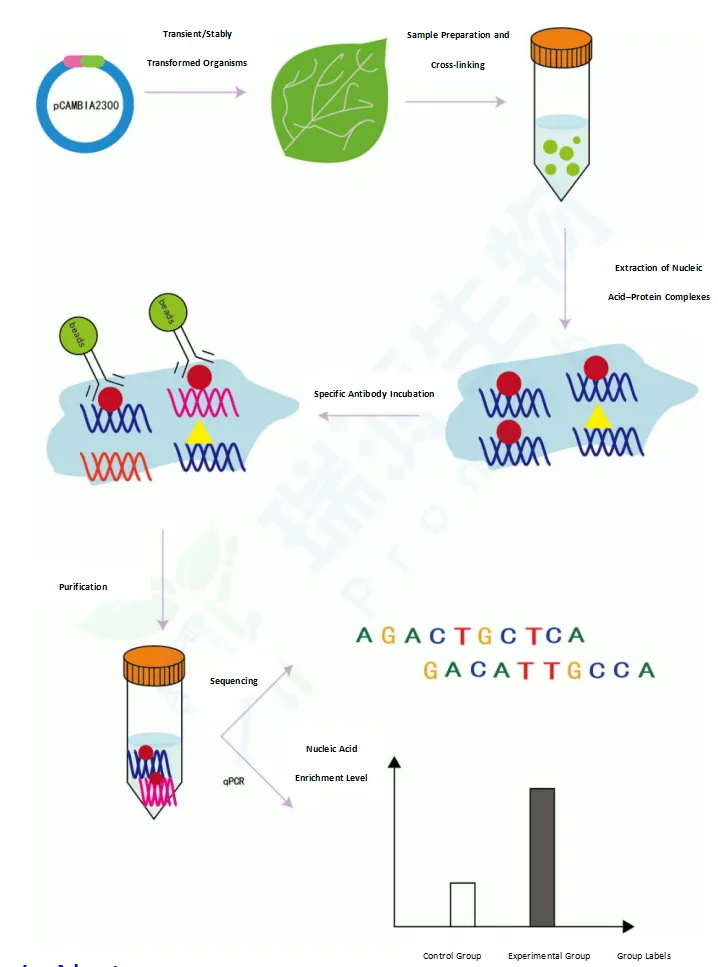Yeast One-Hybrid (Y1H) Screening Service
High-Throughput Y1H Screening for DNA-Protein Interaction Analysis
The Yeast One-Hybrid (Y1H) technique, an extension of the Yeast Two-Hybrid (Y2H) system, is a widely used tool for studying nucleic acid-protein interactions. This technology is crucial for exploring the mechanisms of gene regulation, identifying DNA-binding proteins, mapping promoter regions, and analyzing transcriptional networks in eukaryotic cells. ProNet Biotech delivers cutting-edge Y1H screening services (Service Code: SRY8009), offering unparalleled precision to help researchers uncover promoter-specific interactions and dissect transcriptional regulatory mechanisms. Leverage our expertise and state-of-the-art technologies to achieve your research goals efficiently and effectively.
Y1H Screening Technical principle
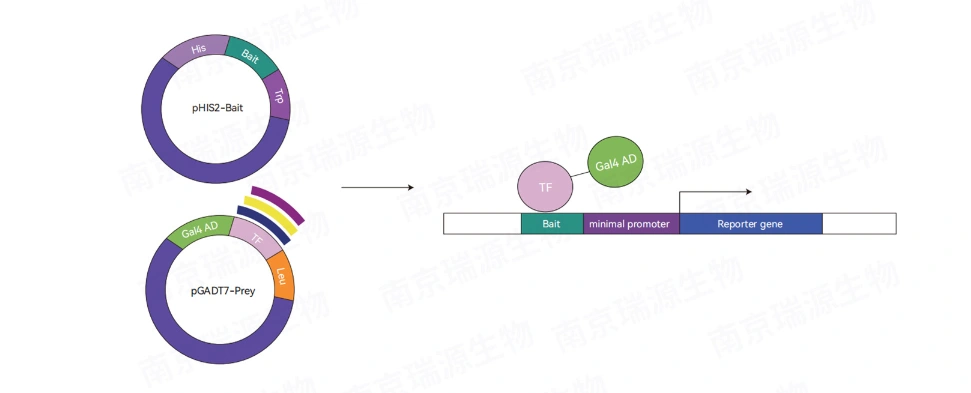
Why Partner with ProNet Biotech for Y1H Screening?
Extensive Species-Specific cDNA Libraries: Free access to high-quality libraries from more than 100 species.
Customizable Promoter Analysis: Provide promoter sequences up to 200 bp or pre-constructed bait plasmids for personalized solutions.
Advanced Data Deliverables: Comprehensive results include BLAST annotations, GO and KEGG pathway analyses, and detailed experimental insights.
Fast Turnaround: Complete results in approximately two months, ensuring timely project progression
Y1H Screening Service Workflow
1. Bait Construction (10 working days):
a. Synthesize the target gene.
b. Clone promoter sequences into the pHIS2 vector.
2. Background Screening of Bait Plasmid (7 working days):
a. Validate self-activation levels of the bait plasmid using 3AT background screening.
b. Transform the bait plasmid into yeast strain Y187.
c. Screen and optimize activation levels using selective SD-TLH medium.
3. Yeast Transformation and Screening (10 working days):
a. Co-transform bait and library plasmids into yeast.
b. Optimize screening conditions using selective SD-TLH medium with 3AT.
c. Sequence positive clones to identify DNA-binding candidates.
4. Positive Clone Re-Screening (Secondary Screening for Validation) (5 working days):
a. Perform secondary screening (re-streaking or re-screening) to confirm positive clones.
b. Use higher selection stringency to eliminate false positives.
c. Compile and analyze validated data to ensure high-confidence results.
5. High-Throughput NGS and Analysis (8 working days):
a. Perform next-generation sequencing on additional positive clones.
b. Conduct GO and KEGG pathway enrichment analyses.
c. Deliver in-depth annotated datasets with clear insights.
Total working days for Y1H screening: ≤ 40 days
Y1H Screening Deliverables
Positive Clone Sequences: Receive at least 15 high-quality sequences based on Sanger sequencing.
Bait Plasmid (Optional): Return of the bait plasmid for further applications.
NGS Sequencing Results: Comprehensive next-generation sequencing data with detailed bioinformatics analyses.
Functional Annotation and Interaction Analysis: Includes GO and KEGG pathway enrichment and interaction strength evaluation.
Detailed Experimental Report: Professionally prepared in Word format, featuring step-by-step methodologies, high-resolution images of results, and in-depth data interpretation.
Y1H Screening FAQs
1. What is Yeast One-Hybrid (Y1H) screening?
Yeast One-Hybrid (Y1H) screening is a high-throughput technique used to identify DNA-binding proteins that interact with specific promoter sequences. It is especially effective for uncovering transcription factors and regulatory proteins involved in gene expression.
2. What is the difference between Yeast One-Hybrid and Yeast Two-Hybrid?
Y1H is designed to study DNA-protein interactions—particularly the binding of transcription factors or regulatory proteins to promoter sequences—while Y2H is used to investigate protein-protein interactions. If your research focuses on transcriptional regulation via promoter binding, Y1H is the ideal method.
3. How long should my promoter sequence be for Y1H screening?
While there is no strict rule, we generally recommend promoter fragments be under 500 bp, ideally around 200 bp or less, to minimize the risk of self-activation. The final length depends on whether the sequence can pass background screening.
4. Do you have suggestions for designing bait sequences?
For best results, select core functional elements of the promoter, such as conserved motifs or individual cis-acting boxes. If multiple binding sites (e.g., BOX elements) are suspected, they can be tandemly inserted into the pHIS2 vector. As long as the bait construct does not induce significant background activation, it is suitable for downstream screening.
5. Can Y1H identify non-transcription factor proteins?
Yes. Although Y1H primarily identifies transcription factors, it may also detect non-TF proteins that can bind directly to DNA or indirectly affect reporter gene expression. Proper background control and downstream validation are key to interpreting results accurately.
6. Why is self-activation testing necessary?
Self-activation occurs when the bait sequence activates the reporter gene independently of a prey protein, leading to false positives. Our service includes 3-AT background screening to ensure that any observed activation is due to true DNA-protein interactions.
Partner with ProNet Biotech for High-Impact Research
At ProNet Biotech, we prioritize precision, innovation, and efficiency to empower your research. Contact us today to unlock critical DNA-protein interaction insights with our Yeast One-Hybrid screening services. When inquiring about this service, please reference Service Code: SRY8009.
☆ Related Optional Service: Yeast One-Hybrid One-to-One Interaction Validation
Y1H Validation Service Overview
Our Yeast One-Hybrid One-to-One Validation service is designed for researchers who require precise confirmation of specific DNA-protein interactions.
Y1H Validation Experimental Steps
Phase 1: Gene synthesis with codon optimization and vector construction (10 working days):
Construct protein A into pGADT7 vector.
Construct the promoter into pHIS2 vector.
Phase 2: Transformation (7 working days):
Transform recombinant plasmids into yeast cells.
Perform background screening experiments.
Phase 3: Interaction Validation (10 working days):
Set up positive and negative control groups.
Validate interactions between constructs.
Y1H Validation Deliverables
1. Recombinant plasmids (Optional).
2. Detailed experimental report in Word format, including methodologies, step-by-step experimental details, high-resolution result images, and comprehensive data interpretation.
Additional Products and Services:
Yeast One Hybrid (Gene-Centered) Vector Kit: Simplify in-house Y1H experiments.
EMSA (Electrophoretic Mobility Shift Assay): High-specificity validation of protein-DNA interactions.
DNA Pull-Down Assays: Confirm protein binding with targeted DNA sequences.
Statement: Services sold by our company are intended for research purposes only and must not be used for diagnostic or therapeutic purposes.
Services Workflow

Online Consultation
01

Solution Matching
02

Service Contract
03

One-Stop-Services
04

Project Report
05
Related Products
Product Inquiry



